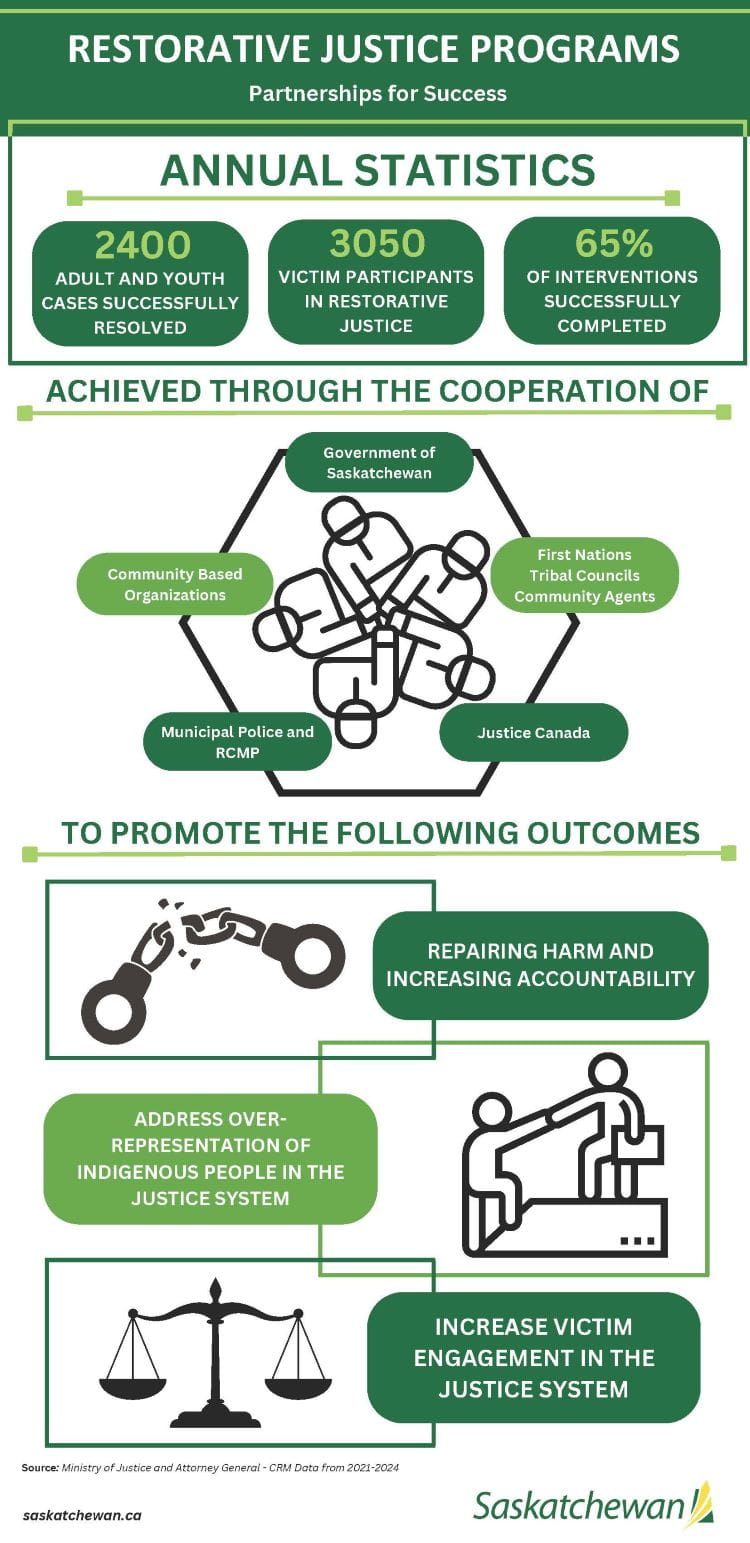The Ministry of Justice and Attorney General supports a province-wide Restorative Justice Initiative that works with victims, offenders and communities to address the harm caused by crime. Through valued partnerships with First Nations, Tribal Councils and community-based organizations, Restorative Justice Programs resolve about 2,400 adult and youth criminal cases annually. Agencies and fee-for-service mediators ensure programming is available across Saskatchewan. Restorative Justice programs are status blind and culturally appropriate.
Restorative Justice Programs use restorative principles to hold offenders accountable for their actions while providing victims, communities, and offenders the opportunity to address harms in a meaningful way. While Restorative Justice processes occur at all stages of the criminal justice system, the most common Restorative Justice Programs in Saskatchewan are Alternative Measures (adult) and Extrajudicial Sanctions (youth). Generally, referrals to these programs involve Victim Offender Mediation. Most referrals come to an agreement between the offender, victim and community representatives to address the harm caused by offending behaviours and make reparations through processes such as compensation, restitution, counselling and/or community service.

The Ministry of Justice and Attorney General partners with many Indigenous agencies in the delivery of Restorative Justice Programs. These relationships between First Nations, Tribal Councils, Métis communities, community-based organizations, the Government of Saskatchewan, police and Justice Canada are vital to delivering program services and support training.

For more information, visit our Justice, Crime and the Law page.
For more information about Restorative Justice, watch this YouTube video.
Source: Ministry of Justice


